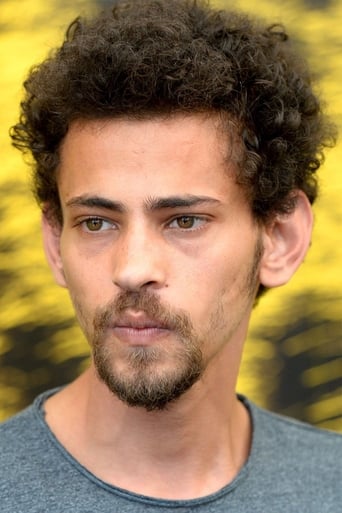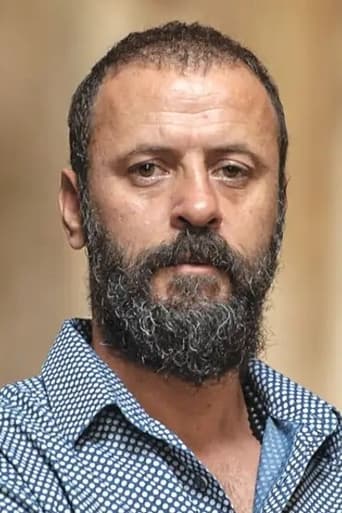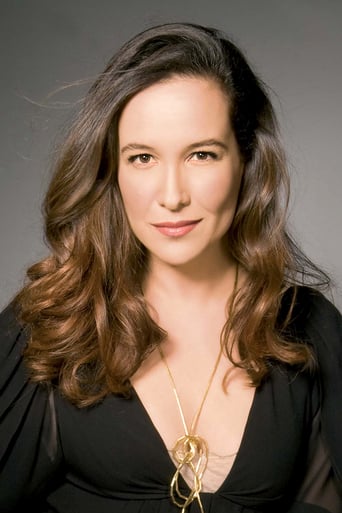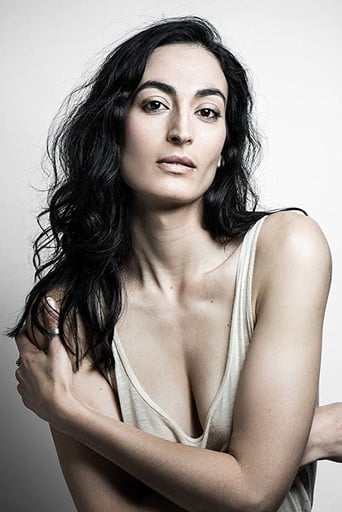kosmasp
Actually that is not true, but it does have a premise that is easy to relate to and if you have the quality writing engage the viewer to be interested in the story. And this has the quality to pull it off. It's not an easy movie to watch, though that doesn't mean, we don't get lighter scenes too.Of course the conflict is there and the characters have to deal with a history, that is so complex that one movie alone could not do justice to it all. You have to really engage this open minded and not blinded by one side and see one side as bad or worse than the other. This is a human story after all and it plays out like that. You really feel for the main characters and their struggle, something the movie is really adamant on showing the viewer ...
Sonofamoviegeek
This movie has many good points and one obvious flaw. The good points are its production, acting and story. Dancing Arabs captures perfectly the Israel of each time it portrays and the two solitudes that Jews and Arabs live in. Israeli Arabs and Jews may have lived in the same land for 50 years (the years portrayed) but still don't trust or even respect each other. Today, the situation is even worse. That is the main message of the movie and the message comes across well and relatively unbiased.The flaw that keeps it from receiving a higher rating from me is the ending. It's fair enough that Eyad tries to escape the discrimination that Israeli Arabs suffer by taking the identity of his Jewish friend, Yonatan who dies from ALS. It's clever enough to "kill" Eyad by burying Yonatan as Eyad the Arab. Edna, Yonatan's mother goes along with this in her grief to have a son. The book must have some other tricks to make the deception work because people don't die in Israel without an official death certificate being registered. With Yonatan officially dead on state computers, Eyad would be caught sometime down the road when he tried to transact some kind of official business.My bet is that he would be caught on his way out of Israel to resume his German studies by the army's computer checking to see if he had done his National Service. The real Yonatan would have had an exemption because of his disability yet there he would be walking around ben Gurion Airport with a knapsack. This would not compute. I need to read the book to see how the author got around that one.
Howard Schumann
According to a 2013 census, 20.7% of Israel's population are Israeli Arabs, citizens of Israel who consider themselves Palestinian by nationality. The problems that arise from these conflicting allegiances are dramatized in Avram Riklis'("Zaytoun") film Dancing Arabs, a title that denotes those who have to straddle two cultures and "dance at two weddings." Based on the semi-autobiographical novel by Sayed Kashua (who also wrote the script), Dancing Arabs, known also as "A Borrowed Identity," was the opening film of the Jerusalem Film Festival in July 2014 and was scheduled to be released immediately, but was held back until now because of the war in Gaza.The film, however, is not designed to stir up ethnic animosity but is rather a heartfelt coming-of-age story that transcends cultural barriers. Set in Tira, a predominantly Arab city in the Southern Triangle near the West Bank, the film begins in the 1980s. Eyad (Razi Gabareen), a brilliant young boy is praised by his father Salah (Ali Suliman, "Flying Home") who recognizes his potential to achieve more than he did in his life. Salah himself attended university in Jerusalem but, after serving jail time because of political activity supporting the Arab cause, now works as a fruit picker. When the class is asked in school what their fathers do for a living, Eyad says repeatedly that his father is a terrorist and refuses to change his mind even when he is hit repeatedly on the hands by the teacher, demanding he say that he is a fruit picker. When Eyad (now played by Tawfeek Barhom, "Farewell Bagdhad") is of age he is sent to a Jerusalem boarding school where his experience of trying to fit in becomes the centerpiece of the film. As the only Arab among Jews, he is an outsider who must learn to speak a new language, study a curriculum weighted against the Arab point of view, and put up with teasing by bullies. His difficulty with language is suggested by a scene in which Eyad pronounces the name of a rock band "Deeb Burble," because, unlike in Hebrew, there's no "p" in Arabic. As time passes, things begin to improve. One of the best scenes in the film is Eyad's eloquence in a literature class, angrily pointing out Israeli literature's inherent bias toward Arab characters, a courageous statement that even wins the plaudits of some Jewish classmates. Further, when an attractive, free-spirited classmate, Naomi (Daniel Kitsis, "S#x Acts"), takes an interest in him, they begin a relationship that grows deeper in spite of its being frowned on by society and both sets of parents.As part of Eyad's community service requirement, he works with Yonatan (Michael Moshonov, "Policeman") a wheel-chair bound victim of Muscular Dystrophy who loves alternative rock and has a wicked sense of humor. Yonatan's mother Edna (Yael Abecassis, "That Lovely Girl") welcomes Eyad into her home not only for her Yonatan's benefit but because she genuinely likes him. Yonatan can relate to Eyad's feeling of being separate and apart from others, though the reason is very different. "Sometimes I forget you're an Arab," Yonatan says. "Me too," replies Eyad. "Don't worry," his friend responds. "Someone will always remind you." Dancing Arabs is not a political film and the Arab-Israeli conflict remains marginal, only occasionally referred to when Eyad's family, mother (Laetitia Eido, "Article 23") and grandmother's (Marlene Bajali, "The Syrian Bride") instinctively pull for Saddam Hussein in the 1991 Gulf War until they realize what he is up against. The film is basically about good people trying to make the most of a bad situation and the fact that they are so alienated from each other because of cultural and ethnic differences is a sad commentary on the lack of political will on both sides. While people may expect violence in a film that deals with ethnic conflict, here there are no grand dramatic gestures that turn children into martyrs, only constant reminders of everyday barriers to a sense of belonging. Even when Eyad learns the language, repeats the Jewish version of history in school, and strives to become a model Arab Israeli citizen, he is reminded every day at checkpoints and roadblocks of his being different. The political situation in Israel has deep-seated roots and we know not to expect the issues raised in the film to easily resolve themselves, yet Riklis leaves several threads hanging and insists on a forced resolution that does not ring true. While this is a regrettable choice, it does not detract from a truly fine effort.
FilmCriticLalitRao
Director Eran Riklis is a filmmaker with great responsibilities on his shoulders. Although Arabs citizens are a minority in Israel, no special treatment is reserved for them. This aspect of Israeli society, its rules and regulations have been depicted by him in this film. It revolves around a young boy who has to make personal sacrifices in order to be accepted in Israeli society. It is no surprise that his life undergoes major upheavals when he is accepted with some reticence, reservations in a prestigious boarding school in Jerusalem. It is not a generalization when it is said that anybody can face issues related to culture, identity and language. If watched from this perspective, 'Dancing Arabs' is neither 100% pro Arab nor 100% anti Israel. "What does it mean to be an Arab in Israel ?" This key questions emanates from this film. 'Dancing Arabs' was the opening film during 19th International Film Festival of Kerala. Its lead actor Tawfik Barhom was the darling of the local media in Kerala state of India for more than a week. Before him, no other actor from Israeli cinema managed to become so popular.





